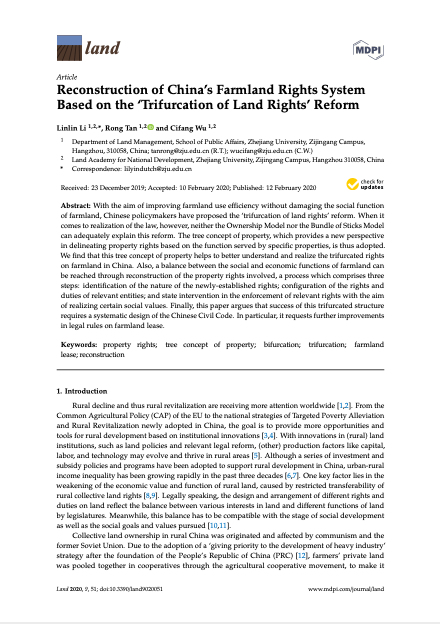Resource information
With the aim of improving farmland use efficiency without damaging the social function of farmland, Chinese policymakers have proposed the ‘trifurcation of land rights’ reform. When it comes to realization of the law, however, neither the Ownership Model nor the Bundle of Sticks Model can adequately explain this reform. The tree concept of property, which provides a new perspective in delineating property rights based on the function served by specific properties, is thus adopted. We find that this tree concept of property helps to better understand and realize the trifurcated rights on farmland in China. Also, a balance between the social and economic functions of farmland can be reached through reconstruction of the property rights involved, a process which comprises three steps: identification of the nature of the newly-established rights; configuration of the rights and duties of relevant entities; and state intervention in the enforcement of relevant rights with the aim of realizing certain social values. Finally, this paper argues that success of this trifurcated structure requires a systematic design of the Chinese Civil Code. In particular, it requests further improvements in legal rules on farmland lease.

